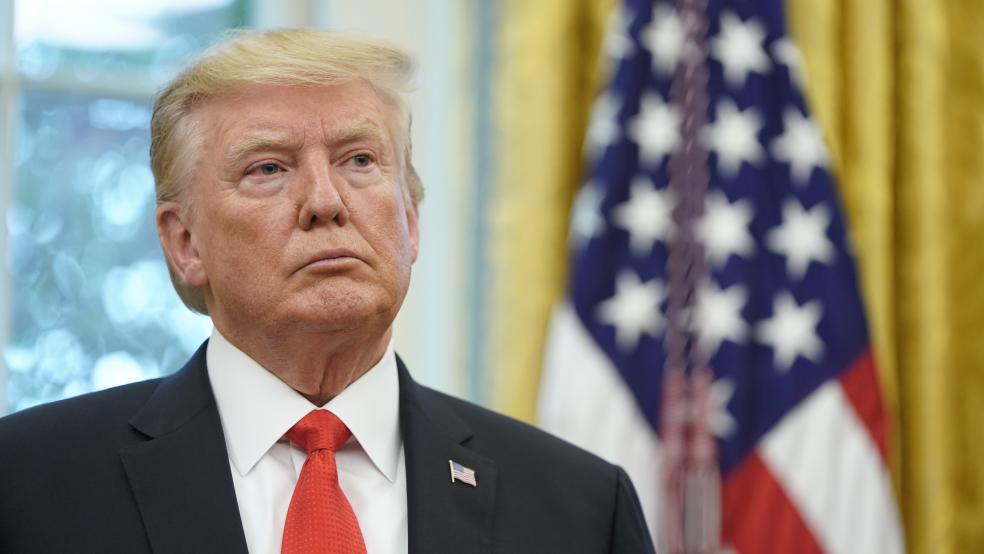In a tweet earlier this week, President Trump urged the Democratic-controlled House to move past what he calls “witch hunt” investigations and “get back to work on drug prices, healthcare, infrastructure and all else.” Yet as The New York Times’s Michael Crowley writes, with more than 400 days to go before the 2020 election, Trump heads into this fall “without a clear policy agenda and with an uphill path to achieving any major new accomplishments before he faces voters.”
In the policy areas Trump highlighted, hope for progress has often been thwarted by Trump himself, or by his administration.
On infrastructure, Trump abruptly canceled a May meeting with Democratic leaders, angered by House Speaker Nancy Pelosi’s suggestion to reporters that he was engaged in a “cover-up.”
On health care, the administration-supported legal case to strike down the Affordable Care Act is still making its way through the courts, but Trump has yet to release his own Obamacare replacement plan. Much of his administration’s agenda on drug pricing has been scrapped or is still in the process of being implemented. And new rules requiring increased price transparency for drug ads and hospitals still face legal challenges as well.
Congress is likely to try to address both drug prices and surprise medical bills this fall, and could still deliver Trump health care wins he can tout on the campaign trail. But a bipartisan push to protect against surprise medical bills is already “facing a buzzsaw of opposition from doctors and hospitals,” The Hill reports — adding that “some leading Democrats have objected to moving on the issue now, wary of giving Trump and Republicans a win on health care.”
Ultimately, as Axios’s Caitlin Owens suggests, if Trump doesn’t win a second term, “his health care legacy would be pretty modest.”
On taxes, Trump and others in his administration have discussed the possibility of additional tax cuts, but there’s no realistic chance that Congress would approve anything before the election and any action Trump tries to take unilaterally — for example, by indexing capital gains to inflation — would likely be met with legal challenges.
What Trump wants: Trump may still have some opportunities to rack up policy achievements ahead of the election, especially on prescription drug prices. Trade and foreign policy are other areas where he could potentially chalk up wins. But the chances are likely to dwindle quickly as we get closer to November 2020 — and, as Crowley writes, a crucial factor in whether anything substantial gets done “is a president whose fleeting attention span, impatience with policy details and appetite for personal feuds and news media controversies make for a limited interest in traditional legislating and regulating.” The big question is still whether the president will push for any specific policy agenda or just focus on campaigning.
The bottom line: At least in terms of presidential election politics, scoring some policy victories may be of limited importance at this point. “His supporters care far more about the persona than the policy,” Brendan Buck, who served as a spokesman for House Speaker Paul Ryan, told the Times. Ultimately, Buck noted, the president “controls what we talk about, and he’s made clear he doesn’t need a policy win to control the conversation, for better or worse.”





